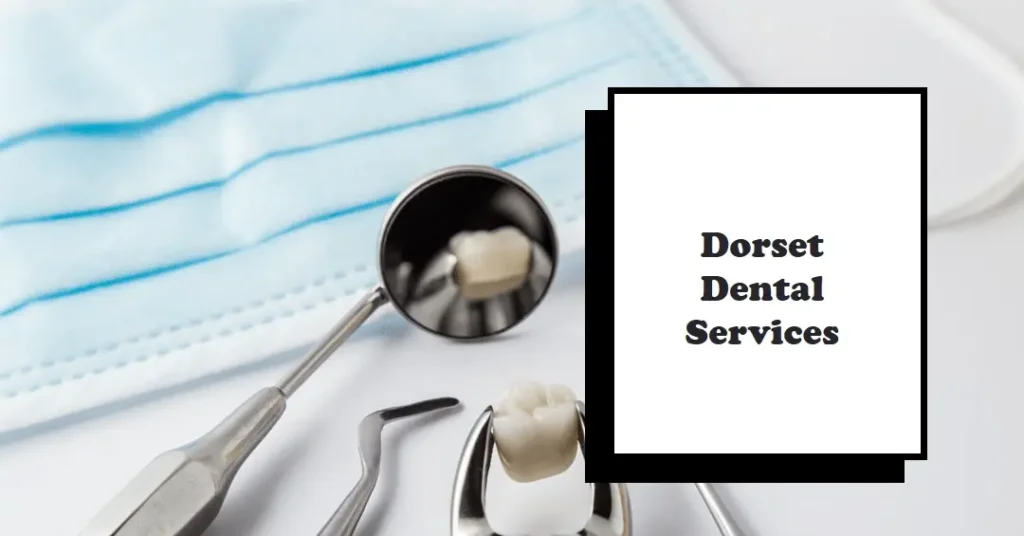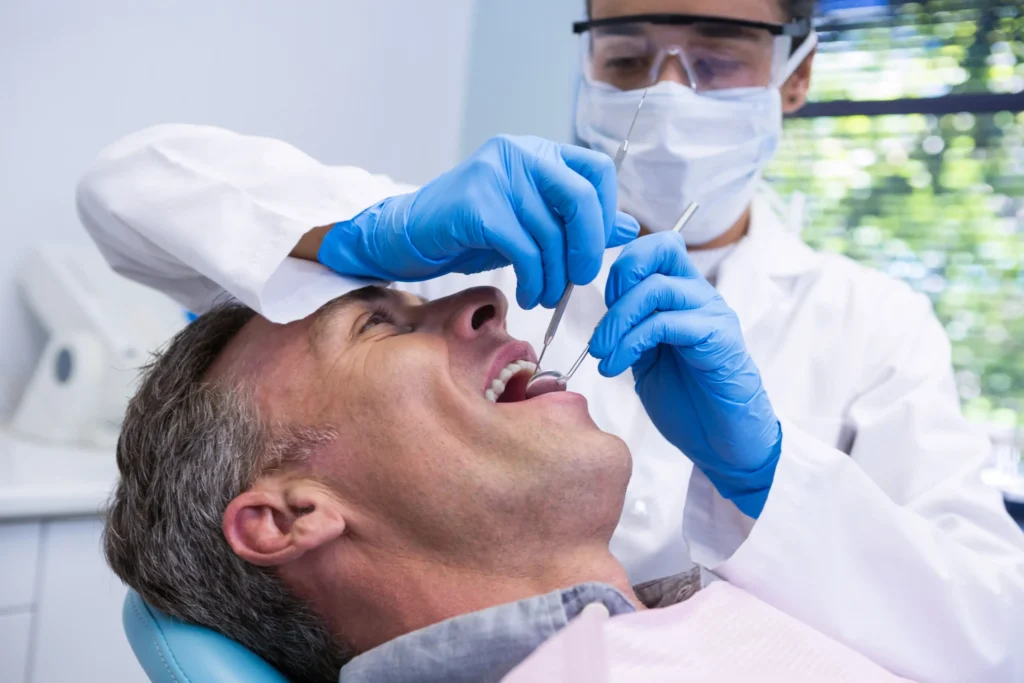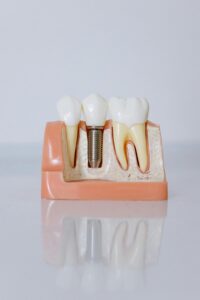A healthy tongue is pink with a thin white coating. It should be free of sores or discoloration.
Tongue health is crucial for overall well-being. The tongue helps with tasting, chewing, swallowing, and speaking. A healthy tongue is a good indicator of your general health. Various conditions like dehydration, infections, or vitamin deficiencies can affect your tongue. Maintaining tongue hygiene is essential to prevent issues such as bad breath or oral infections.
Regular brushing, staying hydrated, and a balanced diet contribute to tongue health. Avoiding excessive alcohol and tobacco use also helps keep your tongue healthy. If you notice persistent changes in your tongue’s appearance or experience discomfort, consult a healthcare professional for proper diagnosis and treatment.
The Importance Of Tongue Health
The tongue plays a crucial role in our daily lives. It helps us speak, taste, and chew food. Maintaining tongue health is essential for overall well-being. A healthy tongue can prevent various health issues and enhance our quality of life.
Impact On Overall Health
A healthy tongue is important for effective communication. It helps in forming words and sounds. Poor tongue health can lead to speech problems.
Digestion begins in the mouth. The tongue helps in chewing and swallowing food. If the tongue is unhealthy, it can affect digestion and nutrient absorption.
- Oral Hygiene: A clean tongue prevents bad breath and infections.
- Immune System: The tongue’s surface can indicate infections or deficiencies.
- Overall Health Monitoring: Doctors often check the tongue to diagnose health issues.
Mental Health can also be impacted by tongue health. An unhealthy tongue can cause discomfort and pain, leading to stress and anxiety.
Consider the following table for a quick summary:
| Aspect | Impact |
| Speech | Essential for clear communication |
| Digestion | Starts the digestion process |
| Oral Hygiene | Prevents bad breath and infections |
| Immune System | Indicates infections or deficiencies |
| Mental Health | Prevents discomfort and stress |
Common Tongue Health Issues
Several common tongue health issues can affect our daily lives. Knowing them can help in early diagnosis and treatment.
Geographic Tongue: This condition causes map-like patches on the tongue. It can be uncomfortable but is usually harmless.
- Symptoms: Red, smooth patches on the tongue.
- Causes: Often unknown, possibly genetic.
Oral Thrush: This is a yeast infection of the mouth. It causes white patches on the tongue and inside the cheeks.
- Symptoms: White or yellow patches.
- Causes: Overgrowth of Candida fungus.
Black Hairy Tongue: This condition makes the tongue look dark and hairy. Poor oral hygiene often causes it.
- Symptoms: Dark, furry appearance.
- Causes: Lack of brushing, tobacco use.
Burning Mouth Syndrome: This causes a burning sensation on the tongue. It can be very painful.
- Symptoms: Burning, tingling, or numbness.
- Causes: Often unknown, possibly due to nerve damage.
Maintaining good tongue health can prevent these issues. Regular brushing, avoiding tobacco, and eating a balanced diet are key.
Signs And Symptoms Of Poor Tongue Health
Your tongue can tell a lot about your overall health. Many health issues show up on the tongue first. Paying attention to your tongue can help you catch problems early. This section covers the signs and symptoms of poor tongue health. Learn what to look for so you can take action if needed.
Changes In Color
A healthy tongue is usually pink. Changes in color can indicate health issues. A white tongue may suggest oral thrush or leukoplakia. A red tongue can point to a vitamin deficiency or scarlet fever. A black, hairy tongue is often due to poor oral hygiene or smoking.
Here are some common color changes and what they might mean:
- White patches: Oral thrush, leukoplakia
- Bright red: Vitamin deficiency, scarlet fever
- Black or brown: Poor hygiene, smoking
- Yellow: Fever, dehydration
- Pale: Anemia, poor circulation
If you notice a change in tongue color that lasts more than a few days, consult a healthcare provider. They can help diagnose the issue.
Pain And Sensitivity
Pain or sensitivity in the tongue can be a sign of various health problems. Burning tongue syndrome causes a burning sensation without any visible sores. Canker sores are small, painful ulcers. They often appear due to stress or minor injuries. Glossitis causes swelling and changes in the color and texture of the tongue.
Here are some common causes of tongue pain and sensitivity:
- Burning tongue syndrome: Hormonal changes, nutritional deficiencies
- Canker sores: Stress, minor injuries, acidic foods
- Glossitis: Infections, allergies, irritants
- Injuries: Biting the tongue, hot foods or drinks
- Oral cancer: Persistent pain, sores that don’t heal
If you experience ongoing pain or sensitivity, seek medical advice. Early detection can prevent more serious issues.
Factors Affecting Tongue Health
The health of your tongue is vital for overall well-being. Many factors influence tongue health, including diet, nutrition, and oral hygiene habits. Understanding these factors can help you maintain a healthy tongue and prevent potential issues.
Diet And Nutrition
Diet and nutrition play a crucial role in tongue health. A balanced diet ensures your tongue gets the necessary nutrients for optimal function. Here are some essential nutrients for a healthy tongue:
- Vitamin B12: Deficiency can lead to tongue inflammation and soreness.
- Iron: Low iron levels can cause a pale or sore tongue.
- Zinc: Vital for taste bud function and healing.
Eating a variety of foods can help meet these nutritional needs. Incorporate the following into your diet:
| Food | Nutrient |
| Lean meats | Iron, Zinc |
| Dairy products | Vitamin B12 |
| Green leafy vegetables | Iron |
| Nuts and seeds | Zinc |
Avoiding certain foods can also benefit tongue health. Spicy foods, excessive sugar, and acidic drinks can irritate the tongue. Drinking plenty of water helps keep the tongue moist and free from harmful bacteria.
Oral Hygiene Habits
Proper oral hygiene is essential for a healthy tongue. Good habits can prevent infections and other issues. Follow these tips to maintain excellent oral hygiene:
- Brush your tongue: Use a toothbrush or tongue scraper to remove bacteria.
- Floss daily: Flossing removes food particles and plaque that brushing may miss.
- Rinse with mouthwash: Antibacterial mouthwash can kill bacteria and freshen breath.
Regular dental check-ups are also important. Your dentist can spot early signs of tongue issues and provide professional cleaning. Avoid habits that harm your tongue, such as smoking and excessive alcohol consumption.
Maintaining a clean mouth is crucial. Brush your teeth at least twice a day and replace your toothbrush every three months. A clean mouth keeps your tongue healthy and free from infections.
Maintaining A Healthy Tongue
Our tongue plays a vital role in our daily life. It helps us taste food, speak clearly, and maintain oral health. Keeping your tongue healthy is essential. A healthy tongue can prevent bad breath, infections, and other oral issues. Let’s dive into some practical tips for maintaining a healthy tongue.
Regular Tongue Cleaning
Regular tongue cleaning is crucial for a healthy tongue. Cleaning your tongue removes bacteria and food particles. This helps prevent bad breath and oral infections. You can use a tongue scraper or a toothbrush. Both are effective.
How to clean your tongue:
- Use a tongue scraper or a soft-bristle toothbrush.
- Start at the back of your tongue and move forward.
- Rinse your mouth with water after cleaning.
Doing this daily can make a big difference. It keeps your tongue clean and your breath fresh. You can also use mouthwash for extra cleanliness. Choose a mouthwash that kills bacteria. This adds an extra layer of protection.
| Tool | Benefit |
| Tongue Scraper | Removes bacteria and debris effectively. |
| Toothbrush | Easy to use and readily available. |
| Mouthwash | Kills bacteria and freshens breath. |
Hydration And Moisture
Hydration is vital for a healthy tongue. A dry mouth can lead to a dry tongue. This makes it easier for bacteria to grow. Drinking enough water keeps your mouth moist. This helps wash away food particles and bacteria.
Tips for staying hydrated:
- Drink at least 8 glasses of water a day.
- Eat fruits and vegetables with high water content.
- Avoid sugary drinks and caffeine, as they can cause dryness.
Maintaining moisture in your mouth is also important. You can chew sugar-free gum to stimulate saliva production. Saliva helps keep your mouth and tongue moist. It also helps neutralize acids and wash away food particles.
| Action | Benefit |
| Drink Water | Keeps mouth moist and washes away bacteria. |
| Eat Hydrating Foods | Provides additional moisture and nutrients. |
| Chew Sugar-Free Gum | Stimulates saliva production. |
By following these simple steps, you can maintain a healthy tongue. A clean, hydrated tongue contributes to overall oral health. Remember to make these practices a daily habit.
When To See A Healthcare Professional
The tongue is a vital part of our body. It helps with speaking, tasting, and swallowing. Keeping your tongue healthy is very important. Sometimes, your tongue may show signs that something is wrong. When should you see a healthcare professional? Knowing the signs can help you get the right care.
Persistent Symptoms
Some symptoms on the tongue may not go away. If you notice these symptoms for more than two weeks, it is time to see a healthcare professional. Here are some common persistent symptoms:
- White patches that do not go away
- Red or swollen areas that stay for a long time
- Pain that does not get better
- Numbness or tingling in the tongue
If you have any of these symptoms, it is a sign that something might be wrong. A healthcare professional can help find the cause. They may check for:
- Infections like thrush
- Vitamin deficiencies
- Allergies
- More serious conditions
Early treatment can stop a small problem from becoming a big one. Do not ignore persistent symptoms. Make an appointment with a healthcare professional if you notice these signs.
Unusual Growths Or Lesions
Sometimes, the tongue can have unusual growths or lesions. These can be signs of serious health issues. If you see any unusual growths or lesions, you should see a healthcare professional. Here are some signs to watch for:
- Lumps or bumps on the tongue
- Sores that do not heal
- Discolored patches
- Bleeding spots on the tongue
These signs could be harmless, but they might also be more serious. A healthcare professional will examine the growths or lesions. They may check for:
- Oral cancers
- Benign tumors
- Infections
- Other underlying conditions
Getting a proper diagnosis is important. Early detection can make a big difference. Do not wait. If you see unusual growths or lesions, see a healthcare professional right away.
Preventive Measures For Tongue Health
Maintaining good tongue health is vital for overall oral hygiene. It helps in preventing various diseases and ensures a fresh breath. Below are some effective preventive measures to keep your tongue healthy and clean.
Regular Dental Check-ups
Regular dental check-ups are essential for maintaining tongue health. Dentists can identify issues early and provide necessary treatments. Visiting the dentist twice a year is recommended. During these visits, your dentist will:
- Examine your tongue for any signs of disease or infection.
- Clean your teeth and tongue to remove plaque and bacteria.
- Provide advice on proper tongue cleaning techniques.
Regular check-ups can detect problems like:
| Condition | Symptoms |
| Oral Thrush | White patches on the tongue |
| Leukoplakia | Thick, white patches |
| Oral Cancer | Sores or lumps |
Regular check-ups also help in maintaining overall oral health. They ensure early detection and treatment of potential issues. Following your dentist’s advice can significantly improve your tongue health.
Avoiding Tobacco And Excessive Alcohol
Avoiding tobacco and excessive alcohol is crucial for tongue health. Both substances can lead to severe tongue issues. Tobacco use can cause:
- Oral cancer that affects the tongue.
- Leukoplakia which are white patches on the tongue.
- Periodontal disease which impacts gums and tongue.
Excessive alcohol consumption can lead to:
- Dehydration that affects tongue moisture.
- Increased bacterial growth on the tongue.
- Greater risk of oral cancer.
Reducing or eliminating these habits can greatly improve tongue health. Opt for healthier choices like:
- Drinking water
- Eating fruits and vegetables
- Practicing good oral hygiene
Taking these steps helps in maintaining a healthy tongue. A clean and healthy tongue leads to better overall oral health and a more confident smile.
Read Also,
Sleep Apnea treatment : Effective Tips for Better Sleep
How Comfortable Is Sedation Dentistry
Are Home Remedies for Teeth Whitening Safe?
Frequently Asked Questions
What Causes A White Tongue?
A white tongue can be caused by poor oral hygiene, dehydration, or infections like oral thrush. Smoking and alcohol also contribute. Maintaining good oral hygiene and staying hydrated can help.
How To Improve Tongue Health?
To improve tongue health, brush your tongue daily, stay hydrated, and avoid tobacco and excessive alcohol. Regular dental check-ups are also important for overall oral health.
Why Does My Tongue Hurt?
Your tongue might hurt due to injuries, infections, or conditions like oral thrush or ulcers. Spicy foods and certain medications can also cause discomfort.
What Are Signs Of An Unhealthy Tongue?
Signs of an unhealthy tongue include discoloration, swelling, and sores. Persistent bad breath and pain are also indicators. Consult a healthcare professional if symptoms persist.
Conclusion
Maintaining tongue health is essential for overall well-being. Regular cleaning, hydration, and a balanced diet support oral hygiene. Don’t ignore any unusual changes or discomfort. Consult a dentist for persistent issues. Prioritize your tongue’s health to enjoy a better quality of life.
Healthy habits ensure a happier, healthier you.





